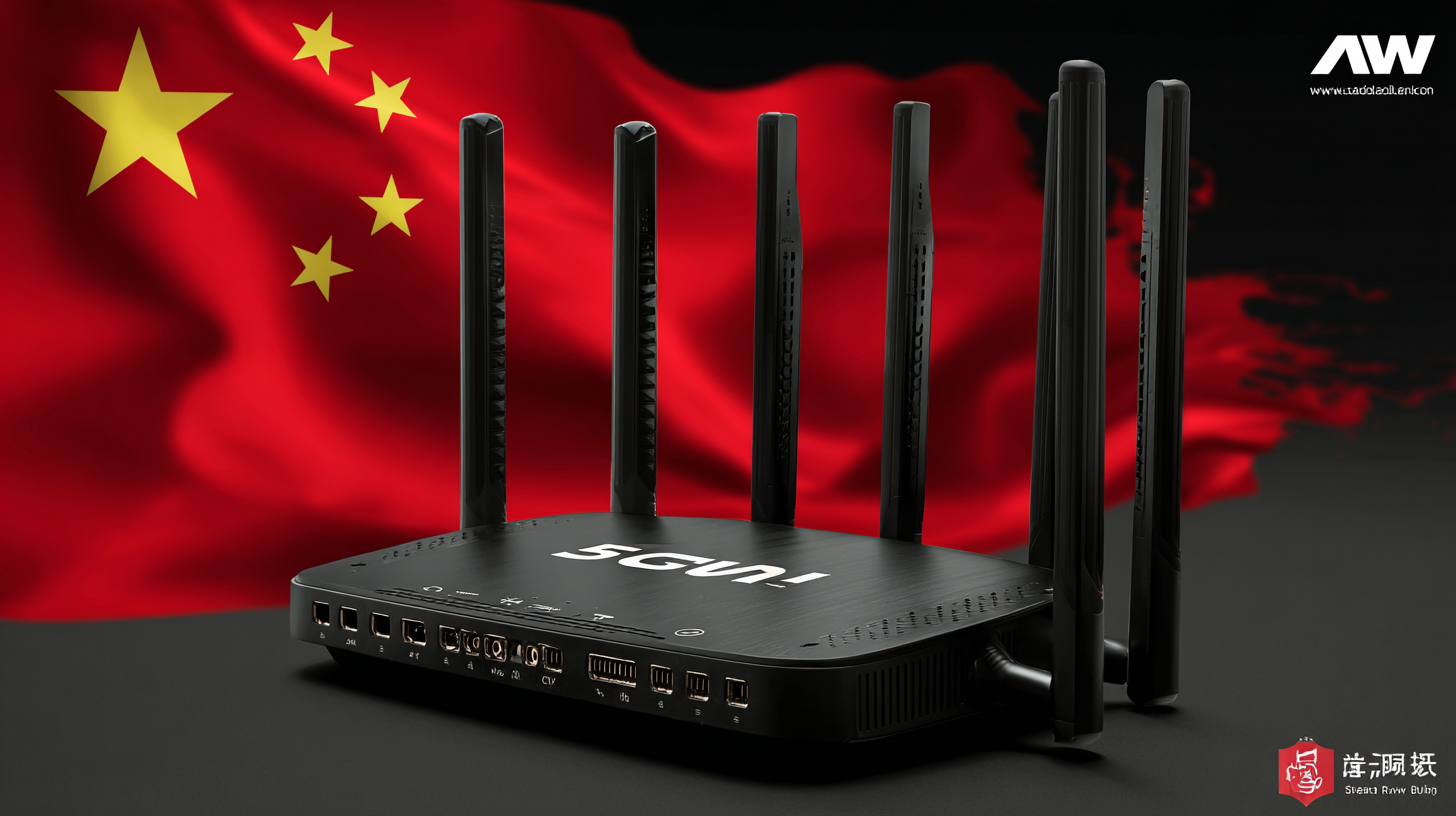In today's hyper-connected world, the demand for seamless and reliable internet access has reached unprecedented levels, particularly with the advent of 5G technology. According to a report by GSMA, global 5G connections are projected to reach 1.7 billion by 2025, underscoring a significant shift in how individuals and businesses connect and communicate. Amidst this transformative landscape, the importance of robust 5G sim routers cannot be overstated. These devices, engineered to elevate connectivity like never before, serve as gateways for users to experience the lightning-fast speeds and low latency that 5G networks promise.

Chinese manufacturers have emerged as pioneers in this sector, offering 5G sim routers that blend advanced technology with superior craftsmanship, ensuring quality and performance. As the mantra "Made in China, Upgraded Quality, Bestsellers Worldwide" resonates, the global market is witnessing an increasing reliance on these innovative solutions to meet the demands of modern digital lifestyles.
The rise of 5G technology is reshaping global connectivity like never before. According to recent industry reports, the global 5G infrastructure market is projected to grow significantly, with estimates suggesting it could reach over $47 billion by 2027. This growth is driven by advancements in communication infrastructure, including Radio Access Networks (RAN), transport technologies, and core technology, all of which are essential for deploying efficient 5G networks.
The proliferation of 5G is not just about speed; it introduces a new spectrum band division, enhancing performance across various applications. The low-frequency bands (<1 GHz) are ideal for extensive coverage, while mid-band (1-6 GHz) strikes a balance between speed and coverage, making it suitable for urban areas. High-band frequencies bring ultra-fast speeds but require denser network infrastructure. Businesses looking to leverage this technology must be aware of these distinctions to optimize their connectivity strategies.
Tips: When considering 5G adoption, assess the specific needs of your operations. If coverage is paramount, focus on low and mid-band technologies. For applications that require high speed, explore high-band options but ensure you have the necessary infrastructure. Additionally, staying updated with regular industry trend reports will help you navigate the evolving landscape and make informed decisions on connectivity investments.

In the rapidly evolving landscape of wireless connectivity, understanding the key features of the best 5G SIM routers crafted in China is paramount. As Huawei introduced the pivotal characteristics of 5.5G networks during the "Win-Win Innovation Week," the focus shifts to the unparalleled experience, massive connectivity, and intrinsic intelligence. These features not only promise enhanced consumer services but also cater to the burgeoning demands of business applications across industries.
When selecting a 5G SIM router, consider these important tips: First, prioritize routers that support high data transfer speeds, ensuring a seamless browsing experience. Second, look for devices with robust security features to protect your network from potential threats. Lastly, ensure compatibility with a wide range of devices, facilitating easy integration into your existing infrastructure. By keeping these elements in mind, you can enhance your connectivity solutions and leverage the advantages of cutting-edge 5G technology.
Moreover, as initiatives across the Asia-Pacific region accelerate the deployment of Net5.5G, the importance of adopting advanced networking solutions becomes even clearer. Engaging with the latest advancements will not only boost service provision but also invigorate new growth avenues for operators, aligning with the aspirations of a digitally connected future.
The recent IP DAY summit themed "Net5.5G Network Development," co-hosted by MTN and a leading telecommunications provider, showcased the importance of advanced connectivity solutions in enhancing business operations. Bringing together top minds in network planning and data communications, the event highlighted how 5G routers are revolutionizing businesses by enabling faster data transfer, improved connectivity, and more robust communication channels.

In today's fast-paced digital landscape, leveraging cutting-edge 5G technology is imperative for enterprises aiming to stay competitive. The summit emphasized that by integrating high-quality 5G routers into their operational frameworks, businesses can enhance efficiency and productivity. These devices not only facilitate seamless remote communication but also support the growing demand for data-intensive applications, positioning companies to capitalize on the opportunities presented by the digital economy. As businesses adapt to this new environment, the insights shared at the summit offer a strategic advantage in navigating the complexities of global connectivity.
As we look towards 2025, the rapid evolution of 5G technology is set to redefine global connectivity. According to a report by the Global Mobile Suppliers Association (GSA), 5G subscriptions are expected to surpass 1.7 billion by 2025. This surge will not only enhance mobile broadband services but will also usher in a new era of IoT (Internet of Things) applications. The ability of 5G networks to handle massive amounts of data with ultra-low latency will empower smart cities, autonomous vehicles, and advanced healthcare solutions, making connectivity faster and more reliable than ever before.
Moreover, the demand for efficient and high-speed data transfer necessitates the development of sophisticated devices, such as 5G SIM routers. These routers are essential for maximizing the potential of 5G networks, enabling seamless connectivity for multiple devices simultaneously. A study by ResearchAndMarkets projects that the global market for 5G routers will grow significantly, with an estimated CAGR of 42.7% from 2021 to 2027. This trend indicates not only a growing consumer demand for high-speed internet but also the burgeoning expansion of 5G infrastructure across urban and rural landscapes, ultimately enhancing digital inclusivity worldwide.
The emergence of 5G technology is revolutionizing global connectivity, with the latest industry reports indicating that 5G networks are expected to cover one-third of the world's population by 2025. This rapid expansion is accompanied by the development of advanced 5G SIM routers, which play a crucial role in ensuring seamless connectivity. A comparative analysis of the top models reveals significant variations in performance, with routers offering speeds up to 10 Gbps, which is ten times faster than 4G. This capability not only enhances personal user experiences but also benefits industries reliant on high-speed connectivity, such as telemedicine and smart manufacturing.
Recent studies illustrate that the adoption of 5G SIM routers can lead to a remarkable increase in data transmission efficiency. For instance, a report published by the Global Telecoms Business highlights that businesses utilizing these routers can improve operational flows and reduce latency by nearly 50%. Additionally, with the ongoing push for edge computing, the ability of these routers to handle massive data loads efficiently positions them as essential tools in today's digitally-driven landscape. The competition among manufacturers to produce the best 5G SIM routers is shaping the future of connectivity, paving the way for more innovative applications in various sectors.


